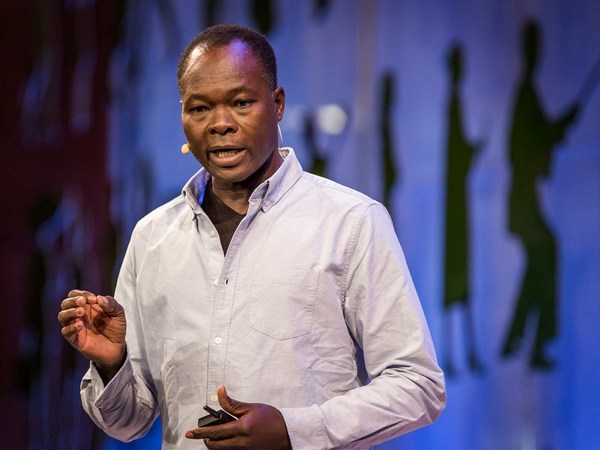This could be a photo of any of my ancestors. But this is the last photo I found of my grandfather, grandpa Jorge, days before he passed in a plane crash, at 36 years of age. And just like him, my grandfather, my other grandfather Sergio and my own father, had near fatal accidents in their life, which they barely survived. Some time ago I realized that this fear that any plan could be over at any second, made me, and makes me, live my life with more urgency. Every day my decisions matter, and every day has to be lived. I’m Manuel Rozas, entrepreneur, scientist and dad of this beautiful bunch of roses. 12 years ago we lived in Santiago. A new dad, husband and scientist who’d begun dreaming of starting a business. At that time, without realizing it, during a very unstable starting point, I made decisions without realizing that they would impact who I am today. They would be an integral part of who I am. In those years we dreamed of going south. We dreamed of walking under the rain, the freezing air in the morning, or seeing the sun rise behind the volcanoes. We also wanted to migrate from an artificial, cold city to a closer community where people greet each other when they see them on the street. I’m a scientist and I was first-time dad. It hurt me to think about the damage my daughter would have in her more sensitive formative years, in her DNA. But for some reason we didn’t take the step. Days passed, months passed and we didn’t make the decision. Perhaps because of the fear of change, of losing economic stability or losing our support network, our family, our friends. It’s interesting how our brain works, how it plays with us. We are victims of biases that we don’t even realize, biases that some use, for example, to guide our purchasing decisions, how the products on a restaurant’s menu are described, how the food and products in a supermarket are distributed, even the music they play. We are victims of all that. Other biases, for example, as many of you probably wrongly believe, is that one of these circles is bigger than the other. Because they are not. A bias that affects us, in relation to the point I’m making today, is that the human being puts more emphasis on what it can lose rather than on what it can win. I will explain myself. When I think about moving from a city I don’t like to a place I think I’m going to like, I give more importance to all the things I might lose than to all the things I might win. Maybe it was that. Or maybe it was losing our economic stability as small as it was in those first years. There’s a study that analyzed more than 36,000 immigrants in over 150 countries. It identified that migrants are 9% happier than non-migrants. But strangely, another study of Stephen Stedman’s, professor of economics at the University of Otago, discovers something interesting. He analyzed a group Tongans who were only born in Tonga. I didn’t know this either. They won the lottery and moved to New Zealand in the search of better economic conditions. One in 10 was selected. This group was analyzed by Stedman for several years and he discovered how the Tongans had increased their income. They tripled their income. But the most striking thing was that they were less happy than those left behind. Why? Probably because income isn’t everything. Economic stability isn’t everything, but let’s not be naive either. It’s obviously important, but how much? Well, income that allows you to live and not just survive. There’s a study that analyzes happiness in the world every year. And as you can see, as long as the countries have more income per capita, they’re effectively happier, but they quickly reach a plateau, a limit and then it changes just a little. So, let’s take it into consideration, but let’s just give its rightful place. There are more important things that have to make sense to you when deciding to migrate or not. Maybe that was the Tongans’ case. Or maybe it was that, effectively, they had lost their community. It may be the case, it may not. In sociology there’s a term called homophily, which is the attraction we have to those we consider our equal. Attraction felt by these starlings, these birds that fly the sky in their millions, making these beautiful flying sculptures. They’re there because they see, feel and are attracted to each other. The saying “Tell me who you are with and I’ll tell you who you are.” Homophily can be for those who have a similar origin or have similar values to us. This thing about values is interesting. Because when you choose the place where you want to live, you choose it for the air, the food, the noise or the sea corals. and when you arrive to that place, what’s going to happen? You’ll find people that had chosen that place probably for the same reasons as you had. Probably because they value the same things you do. And then, something interesting takes place. That place is probably also choosing you. And by getting you together, homophily is in action. You see something that makes sense to you in the other person, you identify with them, you connect. You make really good friends and strong networks. Networks that make things happen. There’s a study that measured how 11,000 Germans who migrated to different countries had 100% more close friends than those who hadn’t migrated. It’s been 12 years, as I was telling you, since we came to live in Puerto de Varas, la Cuenca. I was lucky to see how people who choose to live in the place they want, can make a difference, can make magic. This graphic you see is scientific. It displays circles and rhombuses. The circles are people from my Kura Biotech team and the rhombuses are projects. Ten years ago I founded Kura Biotech and within it we have the Liquen Foundation. The Liquen Foundation allows any member of the team to contribute where it matters the most to them: education, environment, childhood, and execute local projects for one year. These are the projects that you see in the rhombuses. If you pay attention, the circles connect to more than one rhombus. This means that people with a common purpose got together and carried out a project. For example, Isa, Danny and Nicolas. The three got together to support the Kalén Foundation in three different situations. What does Kalén do? It supports detainees to increase their odds of reintegrating into society after serving their sentence. Or for example, Agustín, Javier, Diego and Santiago, that got together to support the Legado Foundation. What does the Legado Foundation do? It restores wetlands in Llanquihue or on the banks of the Maullín river. And maybe the most incredible thing about this is that all the faces that we’re going to see now are people that weren’t born here. They are people who chose to live here. And that’s why they’re people who move for the place and decide to contribute to it. If you love a place, that place will make you happy. That place will win, because you’re there. Why don’t you live in that place? Thank you. (Applause)
Related talks
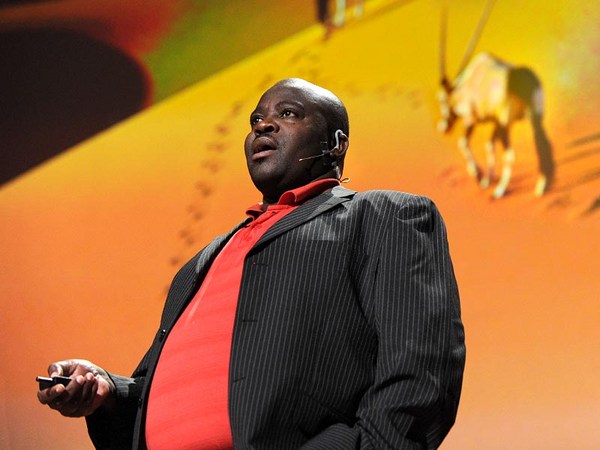
John Kasaona: How poachers became caretakers
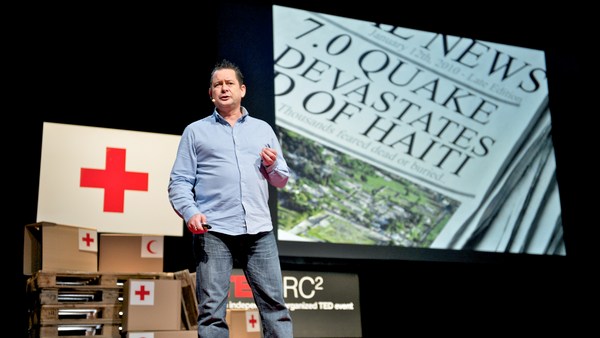
Paul Conneally: How mobile phones power disaster relief
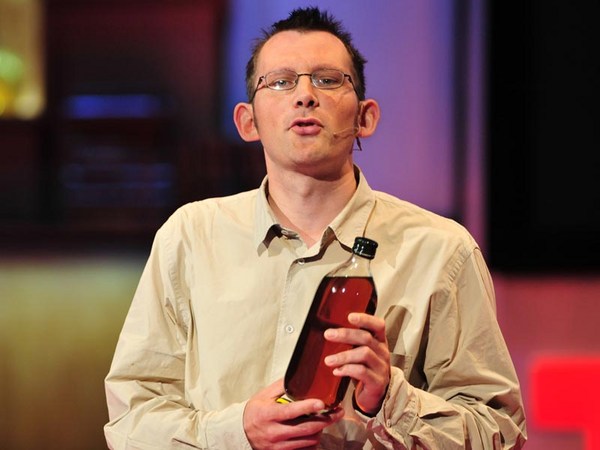
Rob Hopkins: Transition to a world without oil
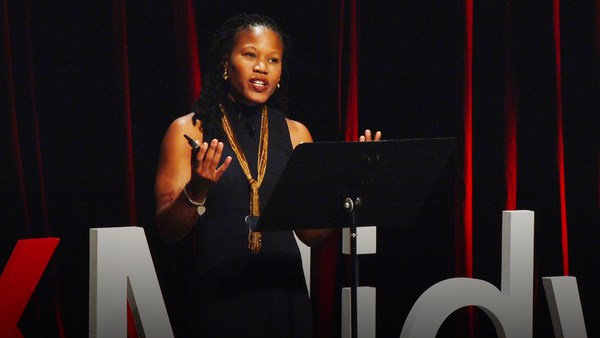
Majora Carter: 3 stories of local eco-entrepreneurship
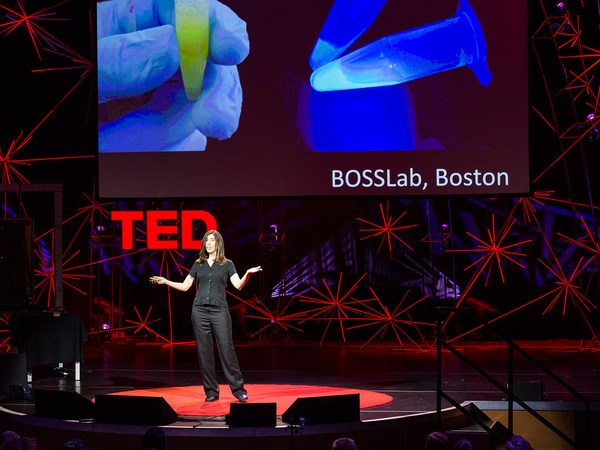
Ellen Jorgensen: Biohacking -- you can do it, too
